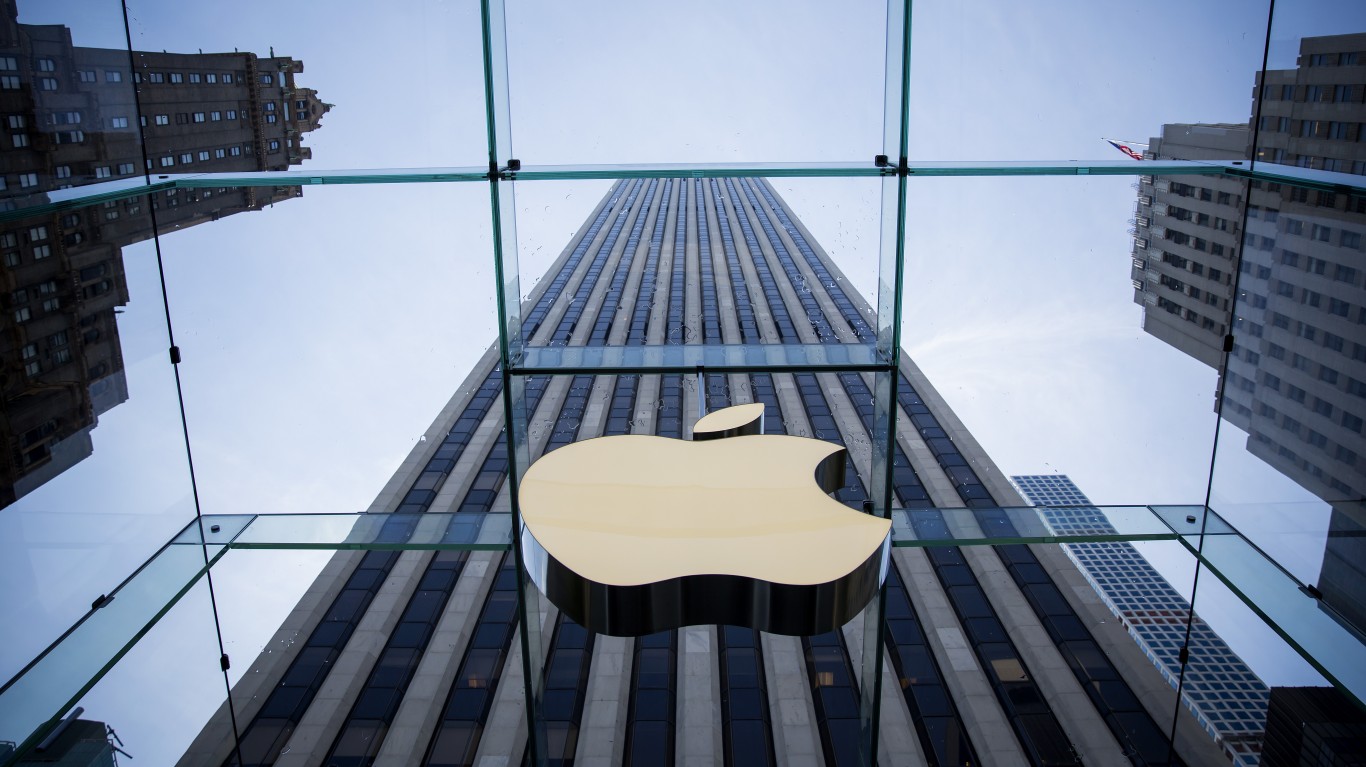
The week of October 30 will mark the week where the earnings floodgates are shown to be wide open as the busiest week. Investors were taught for decades that earnings are what drive stock prices, but in 2020 this is the last week before a very divided election comes into play and eyes are on election results, stimulus packages, and so on.
Apple Inc. (NASDAQ: AAPL) is the largest company in the world with a current market capitalization pushing $2 trillion. It has also been the best performing Dow stock with a gain of about 56% year to date.
While earnings can always act as a catalyst, this particular earnings report may be dependent upon many aspects that are not fully within the company’s direct control.
When Apple reports, the investing community often looks beyond the headline earnings and revenues. For this particular quarter, investors are going to be looking for additional clues about iPhone and peripheral pre-orders and expected phone deliveries for the widely awaited iPhone 12 launch. The new 5G capabilities, at least for some users in larger cellular markets, are expected to bring that iPhone supercycle that has been romanticized about for years.
While Apple is the biggest company in the world and now has a defensive stock status in the age of COVID-19, this back-to-school year has been very mixed and there are certainly some expectations that orders were waiting for big iPhone launch. Apple has already seen euphoric trading after most recent stock split, and Apple is already considered to be a stock to own forever regardless of the quarterly noise.
One interesting aspect about this earnings report is that Apple’s boosts are now becoming incremental even under COVID-19. The fiscal year 2020 revenues are expected to be up 5.1% this year and up 13.2% more next year. For the quarter, the earnings per share consensus is $0.71 and $64.16 billion. That would be down from $0.76 EPS a year ago and sales growth of just 0.2% from a year ago.
A fresh report from Wedbush Securities has called for the might Apple to sell 350 million new iPhones over this upgrade supercycle. Daniel Ives of Wedbush has a very aggressive $150 price target.
While Apple is set to report earnings on Thursday, Wall Street analysts have been eager to big up the price targets and to talk up expectations for the coming supercycle. Not all analysts have been universally positive, but the positive views are more common than negative views.
On October 26. Atlantic Equities was shown to have resumed coverage with an Overweight rating and a $150 price target.
On October 22, Piper Sandler reiterated its Overweight rating and raised its target to $135 from $130.
On October 14, Credit Suisse reiterated its Neutral rating but still raised its target to $106 from (5.
On October 14, Morgan Stanley reiterated its Overweight rating and raised its target to $136 from $130.
On October 12, RBC Capital Markets reiterated its Outperform rating and raised its target to $132 from $111.
On September 22, Raymond James reiterated its Outperform rating and raised its target to $120 from $110.
On September 21, Citigroup reiterated its Buy rating and raised its target to $125 from $112.50.
One analyst which was more cautious in the last month was David Vogt at UBS. In a call from September 23, he cut Apple’s stock to Neutral from Buy, but the price target still was raised to $115 from $106.
Apple shares were last seen trading down about 1% at $113.90 on Monday. Its 52-week range on a split-adjusted basis is $53.13 to $137.98. Refinitiv currently has a $121.43 consensus analyst price target.
Thank you for reading! Have some feedback for us?
Contact the 24/7 Wall St. editorial team.





